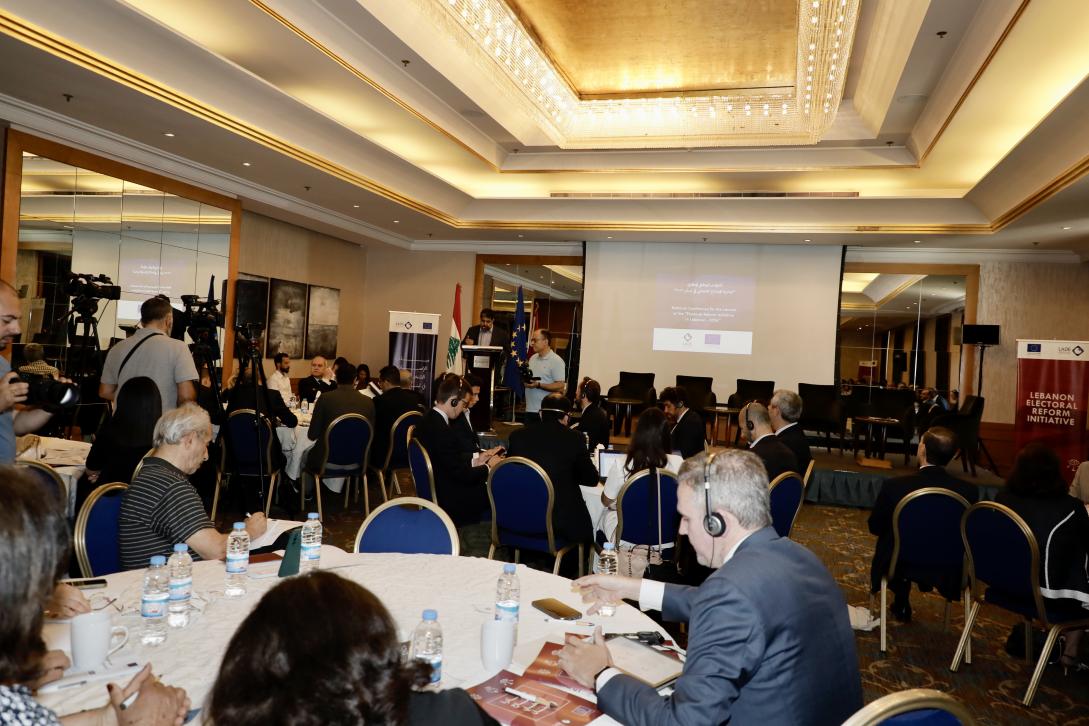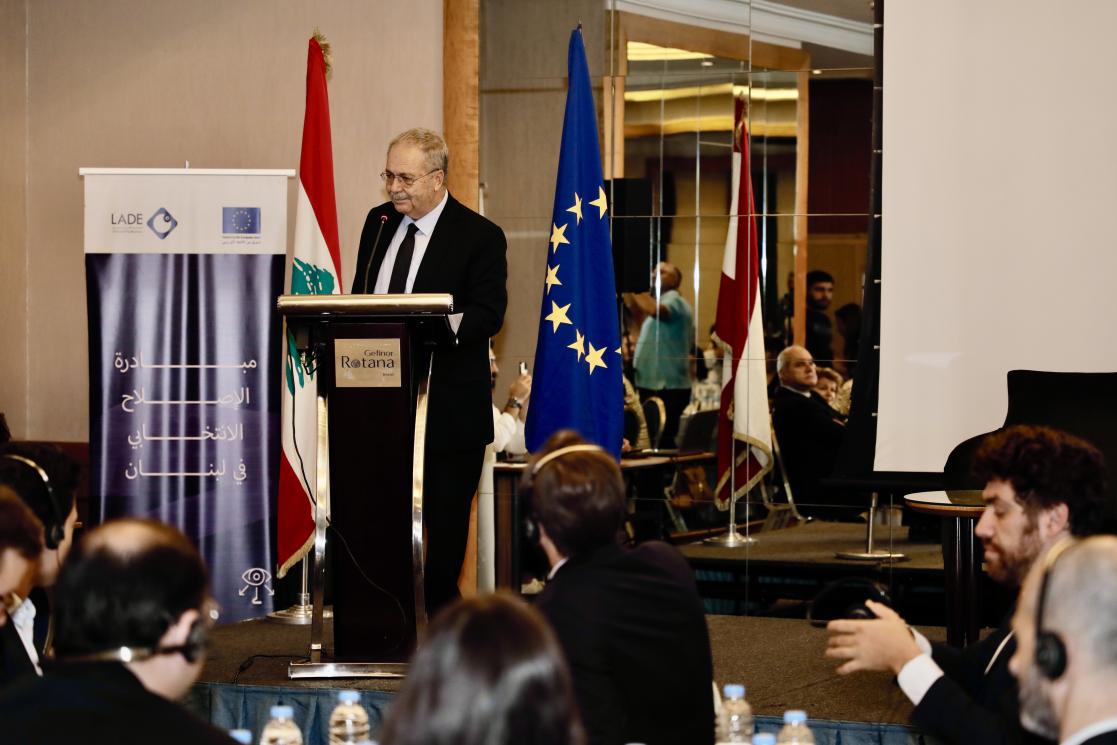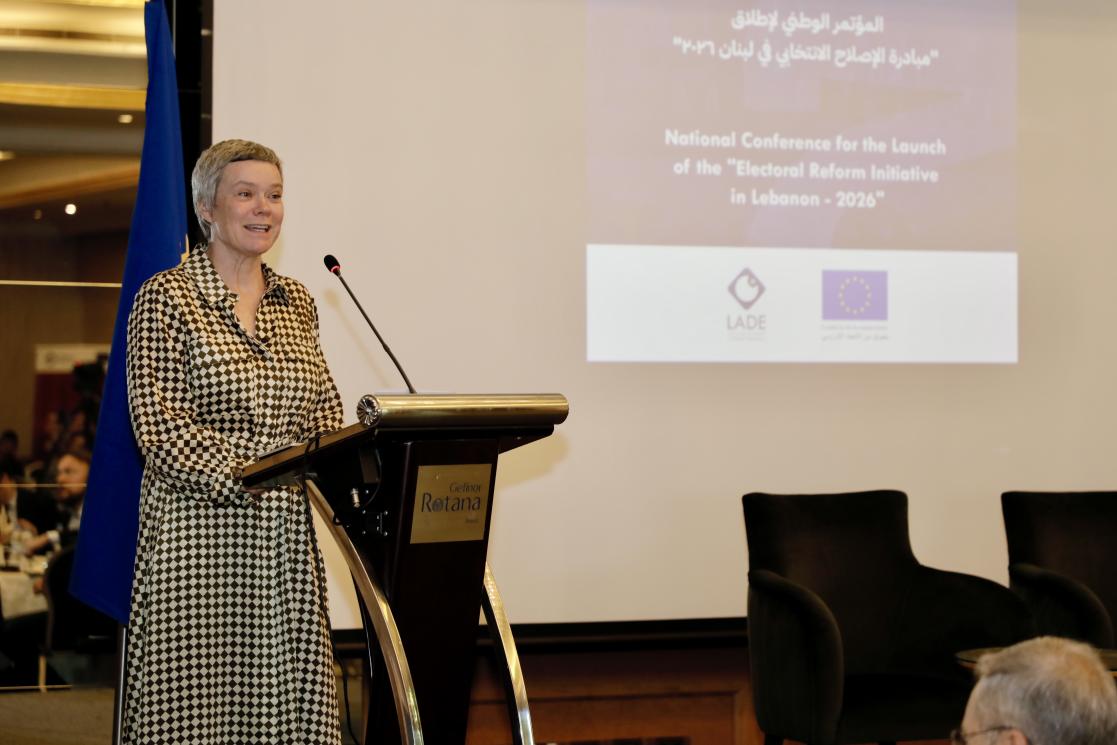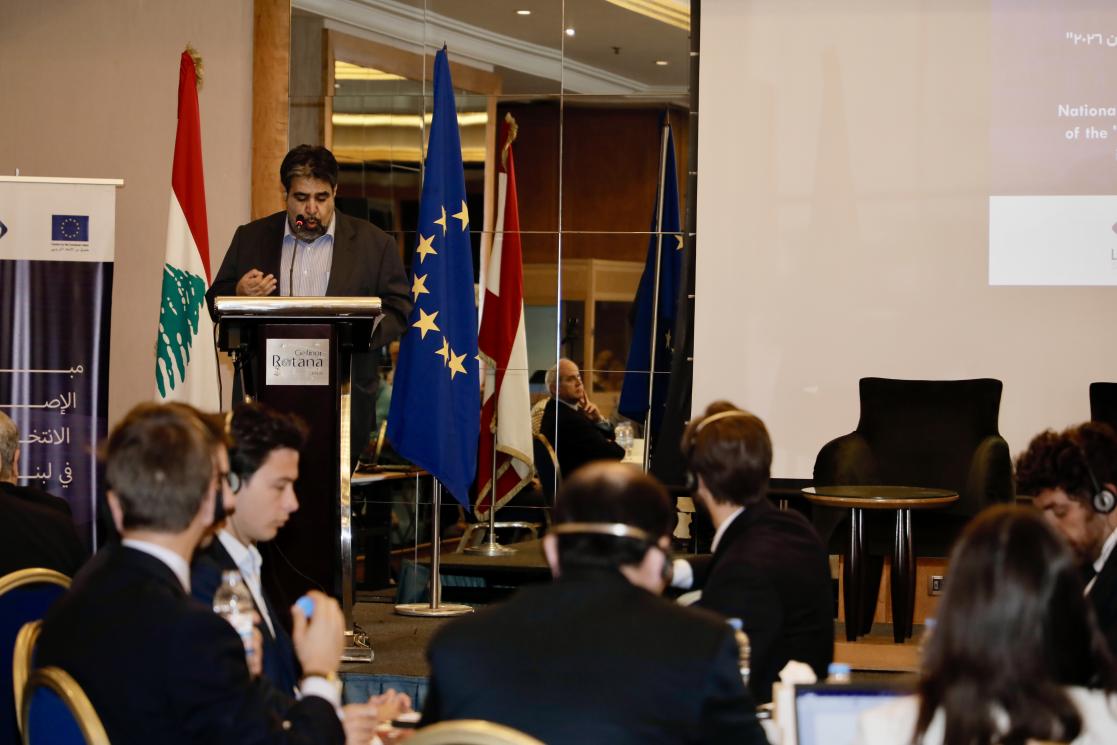LADE Launches the “Lebanon Electoral Reform Initiative 2026” with Support from the European Union

The Lebanese Association for Democratic Elections (LADE), with funding from the European Union, launched the “Lebanon Electoral Reform Initiative 2026” to advance dialogue on electoral reform priorities and support the sovereign efforts of Lebanon’s Government and Parliament. These priorities include strengthening the Supervisory Commission for Elections, establishing Mega Centers, enhancing women’s political participation, and improving election-day procedures.
The launch took place during a national conference held under the patronage of Prime Minister Dr. Nawaf Salam, represented by Deputy Prime Minister Dr. Tarek Mitri, and attended by Members of Parliament, officials, ambassadors, and international and local organizations.

© European Union, 2025
In his speech, Deputy Prime Minister Dr. Tarek Mitri said: “The Ministerial Statement included our commitment to pursue reforms that promote transparency and accountability across various sectors. Naturally, this also applies to the electoral system and election administration, in line with the goals of this conference and the lessons learned from past elections.” He emphasized that “the diversity of participation in this conference enhances the opportunity for the recommendations to be transformed into reform initiatives that take the form of decrees and laws as needed.” He also expressed the government’s belief that “electoral reform is a collective responsibility that requires the convergence of political will and societal expertise.”

© European Union, 2025
For her part, the European Union Ambassador to Lebanon, Sandra De Waele, highlighted that over the past 15 years, the EU has allocated €22 million to support Lebanon’s electoral processes, including voter education, electoral reform, and technical assistance to the Ministry of Interior and Municipalities. She noted that the EU has also deployed Election Observation Missions and stands ready to do so again in 2026 upon formal request. Ambassador De Waele added, “These missions helped identify a number of recommendations to enhance voter turnout and ensure that the elections are fair and transparent, and are conducted efficiently”. She emphasized that these recommendations are central to the discussions taking place today.

© European Union, 2025
In his remarks, LADE Secretary-General Ammar Abboud explained that this initiative “is not a passing step, but the result of more than 29 years of continuous work advocating for an electoral law that genuinely reflects the will of the people and guarantees broad and effective participation. It also represents an opportunity to address the structural challenges in the electoral system through legal and institutional reforms, while reaffirming a core message: electoral reform is a comprehensive process, and no single component can succeed in isolation.” He added: “This initiative provides a chance to implement structural electoral reforms in preparation for the 2026 elections and to advance democratic change in Lebanon.”
The conference featured three specialized panel discussions that addressed the core pillars of the reform initiative ahead of the 2026 parliamentary elections. These sessions served as a dynamic platform for exchange among MPs, experts, and civil society representatives, laying the groundwork for collaborative efforts toward serious and comprehensive electoral reform by 2026.
The first panel focused on the role of the Supervisory Commission for Elections, where participants discussed the need to ensure its legal and financial independence and to empower it to effectively monitor media and campaign spending, as well as enforce the electoral law.
The second panel focused on the establishment of Mega Centers as a practical solution to improve access to voting, particularly for residents living outside their electoral districts. The discussion also addressed the necessary infrastructure and legal amendments required for implementation. Additionally, the panel tackled the issue of women's political representation and emphasized the importance of adopting a gender quota to strengthen that representation.
The third panel explored ways to improve election day procedures, facilitate access to persons with disabilities, and the elderly, emphasizing the importance of standardizing protocols, enhancing the training of polling staff, and ensuring transparency and timely results.
